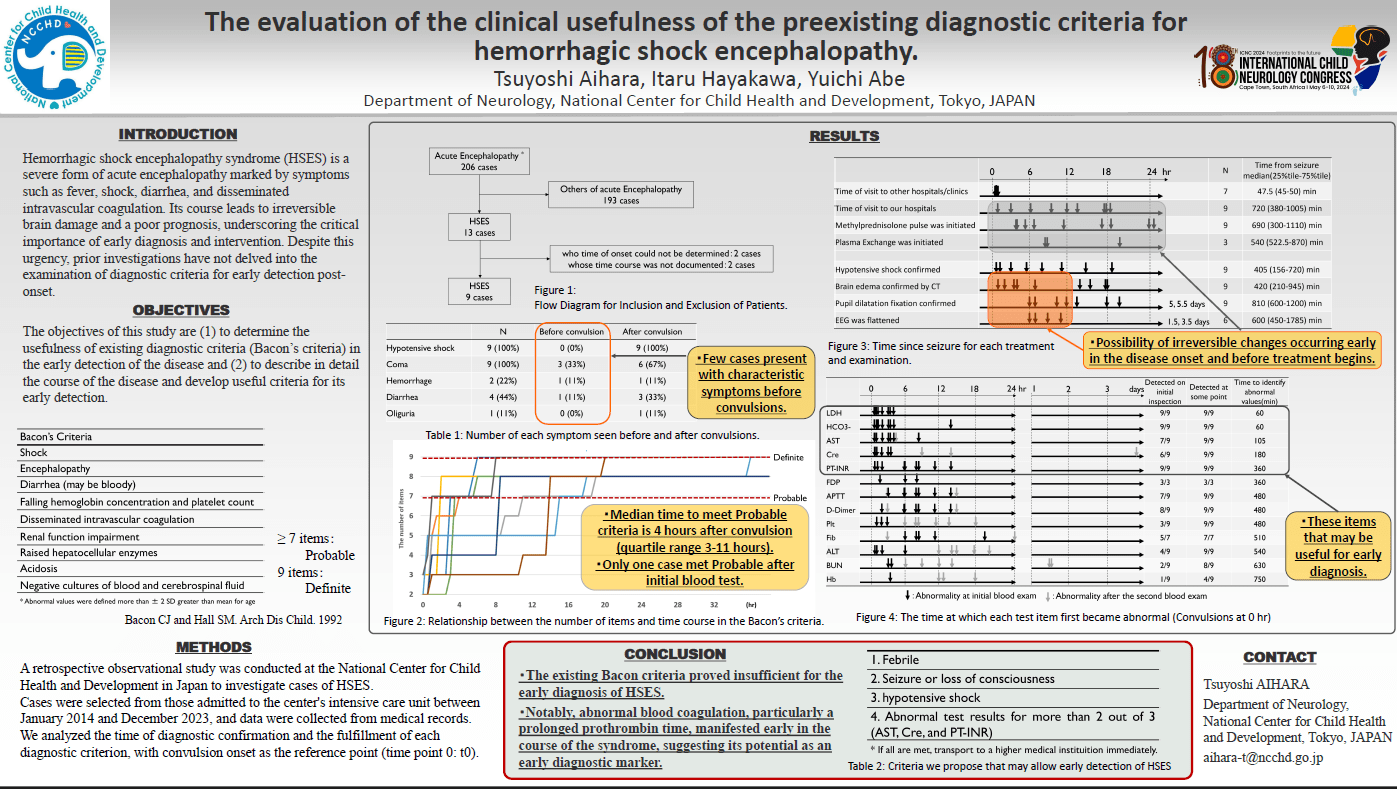The Evaluation Of The Clinical Usefulness Of The Preexisting Diagnostic Criteria For Hemorrhagic Shock Encephalopathy
Introduction: Hemorrhagic shock encephalopathy syndrome (HSES) is a severe form of acute encephalopathy marked by symptoms such as fever, shock, diarrhea, and disseminated intravascular coagulation. Its course leads to irreversible brain damage and a poor prognosis, underscoring the critical importance of early diagnosis and intervention. Despite this urgency for early diagnosis, prior investigations have yet to examine diagnostic criteria for early detection. This study aimed to assess the efficacy of current diagnostic criteria in the early identification of HSES and to propose new diagnostic parameters. The analysis specifically centered on determining when each criterion was satisfied along the post-convulsive timeline. Methods: Single-center observational study scrutinized HSES cases from 2014 to 2023. Data on the onset of seizures and the timing of criterion fulfillment were extracted from medical records. Results: Out of 206 cases of acute encephalopathy, 13 were diagnosed as HSES, with 9 cases establishing confirmed the progress in detail. All 9 cases exhibited a bleak prognosis, resulting in 8 deaths and one patient becoming bedridden. Only one patient (11%) met Bacon et al.’s criteria based on initial blood exam and medical history, with a median time of 4 hours for fulfilling the criteria. Conclusion: The preexisting Bacon’s diagnostic criteria may prove insufficient for the early diagnosis of HSES. Notably, abnormal blood coagulation, particularly a prolonged prothrombin time, may manifest in the early course of the syndrome, suggesting its potential as an early diagnostic marker. Further research should prioritize creating new diagnostic criteria for timely identification and treatment of HSES.
Tsuyoshi Aihara
National Center for Child Health
Japan
Itaru Hayakawa
National Center for Child Health
Japan
Yuichi Abe
National Center for Child Health
Japan

Tsuyoshi Aihara
National Center for Child Health
Japan